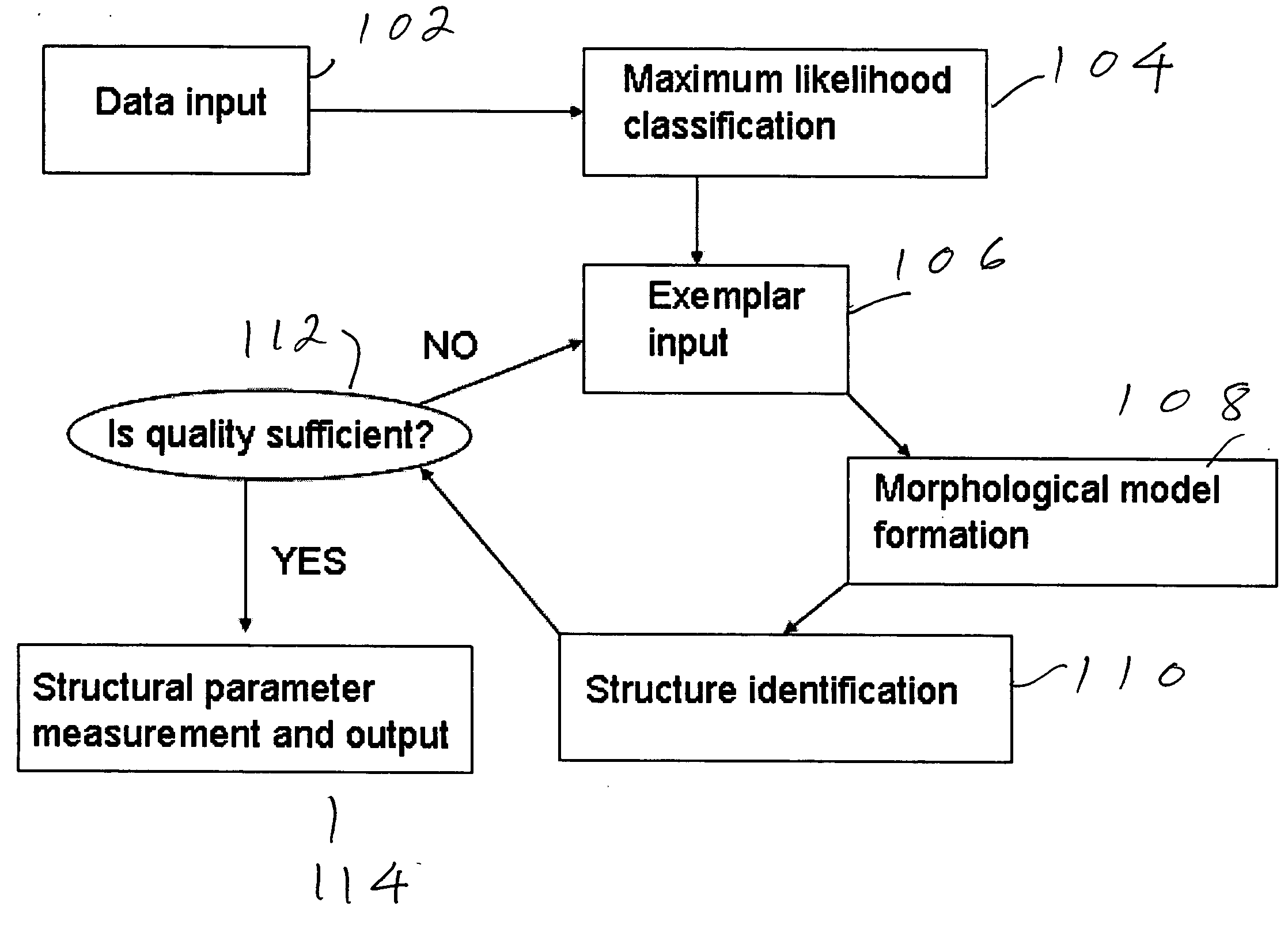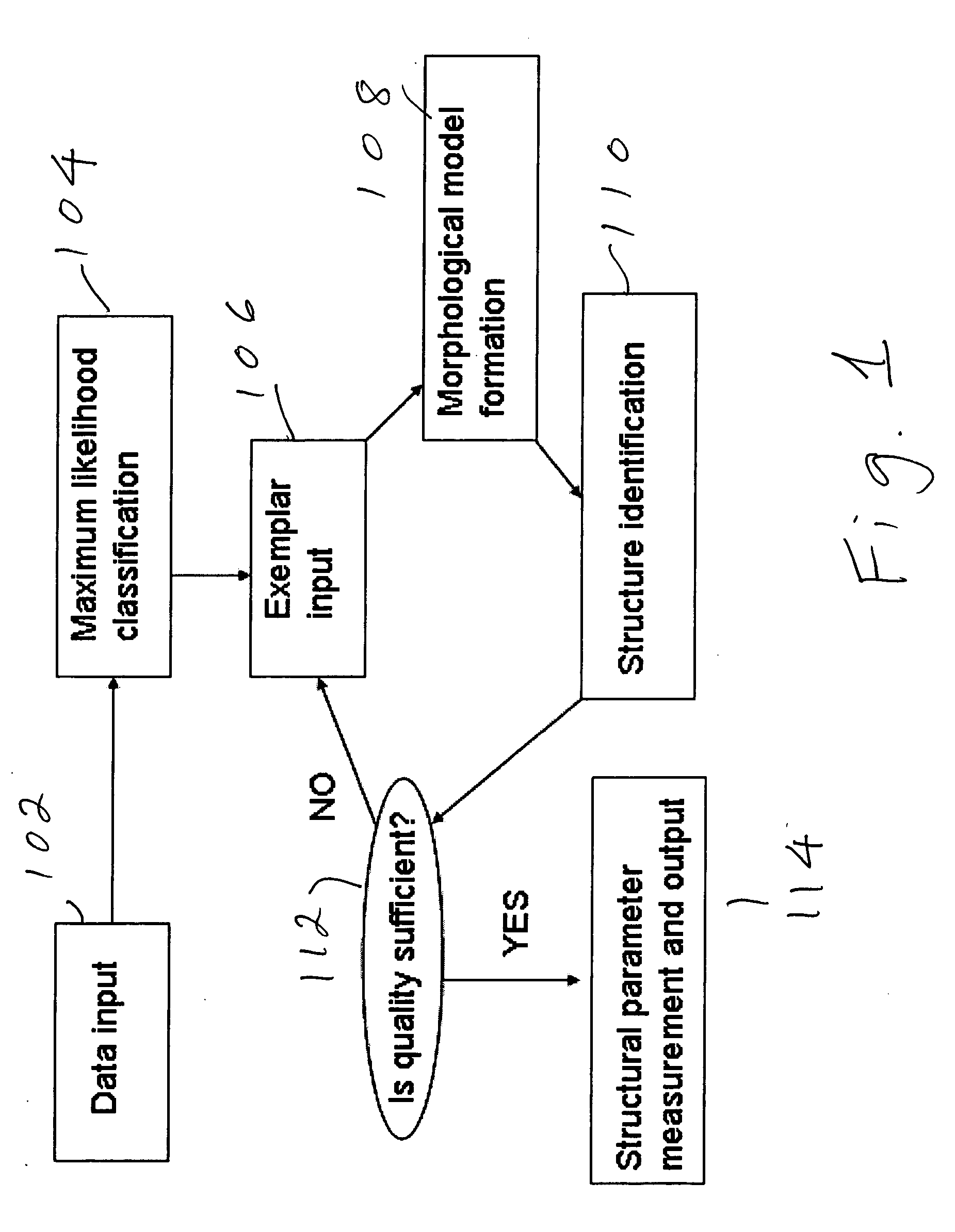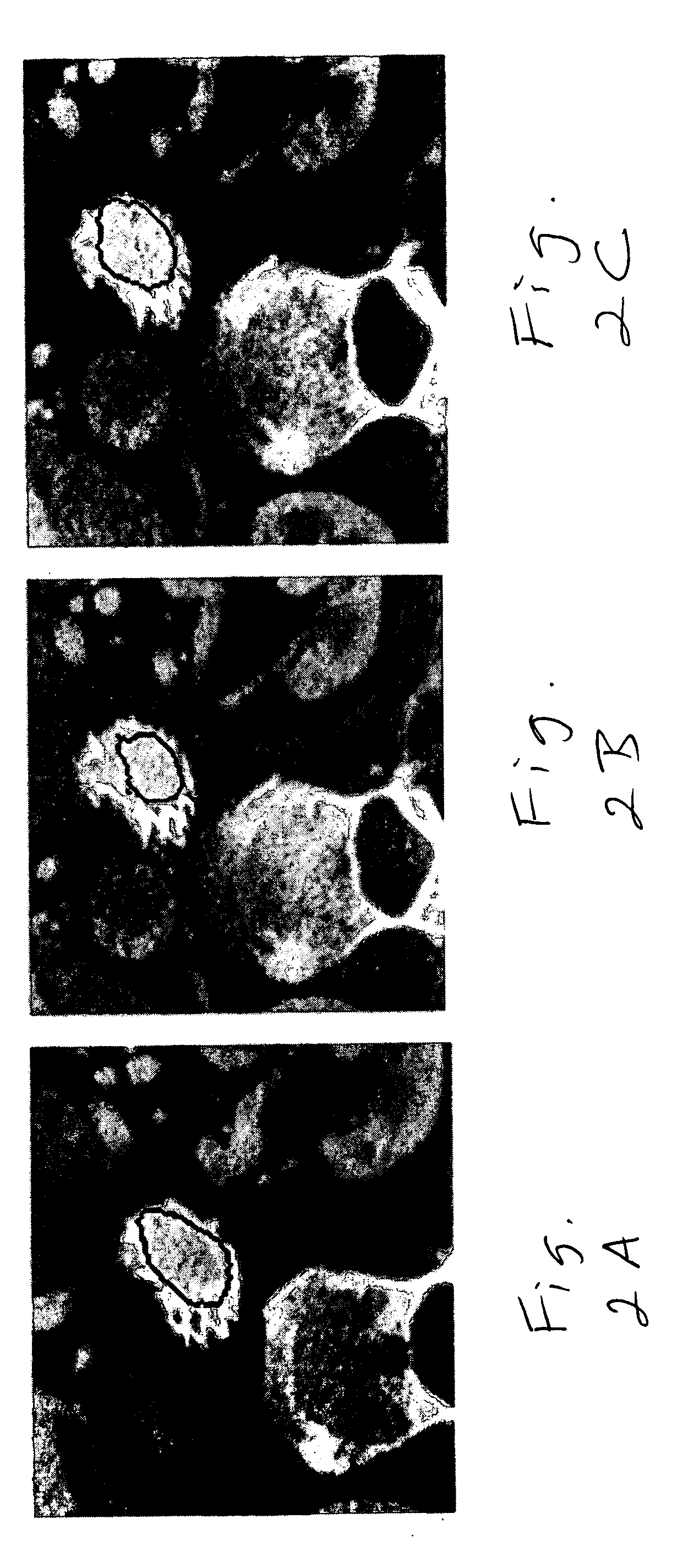Semi-automated measurement of anatomical structures using statistical and morphological priors
a morphological prior and anatomical structure technology, applied in the field of medical image system and method, can solve the problems of manual and subjective acquisition of data points, manual tracing, and high error rate, and achieve the effect of minimizing both intra-operator and inter-operator variation and rapid and accurate operation
- Summary
- Abstract
- Description
- Claims
- Application Information
AI Technical Summary
Benefits of technology
Problems solved by technology
Method used
Image
Examples
Embodiment Construction
A preferred embodiment of the present invention, and experimental results therefrom, will now be set forth in detail with reference to the drawings.
FIG. 1 shows a flow chart of the operational steps of the preferred embodiment. In step 102, data of an image or a sequence of images are input from a suitable source, e.g., a storage medium on which MRI data have been stored.
The maximum likelihood classification (MLC) of step 104 refers to the process of optimally separating an image into areas of similar statistical behavior. It is assumed that regions of similar statistical behavior will correspond to different tissue types. The goal of the MLC algorithm used in this invention is to globally maximize one of the following discriminant functions: gi(x)=lnpi-12lnRi-12(x-mi)tRi-1(x-mi)(1)
where Ri is the covariance matrix for class i, mi is the mean vector for class i, pi is the a priori probability of class i appearing at the voxel under consideration, and x is the value vector...
PUM
 Login to View More
Login to View More Abstract
Description
Claims
Application Information
 Login to View More
Login to View More - R&D
- Intellectual Property
- Life Sciences
- Materials
- Tech Scout
- Unparalleled Data Quality
- Higher Quality Content
- 60% Fewer Hallucinations
Browse by: Latest US Patents, China's latest patents, Technical Efficacy Thesaurus, Application Domain, Technology Topic, Popular Technical Reports.
© 2025 PatSnap. All rights reserved.Legal|Privacy policy|Modern Slavery Act Transparency Statement|Sitemap|About US| Contact US: help@patsnap.com



